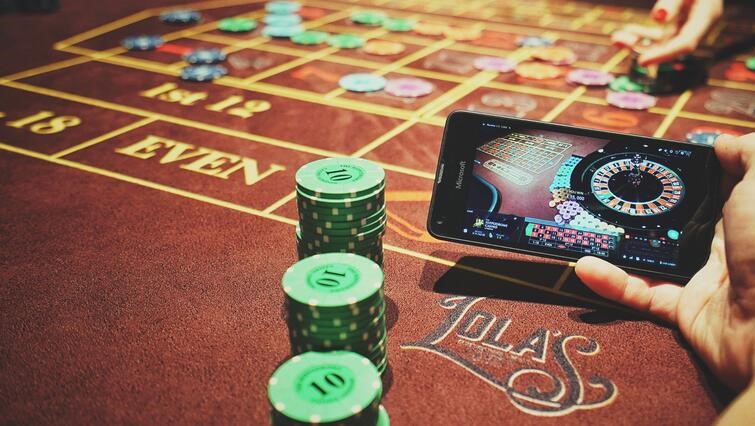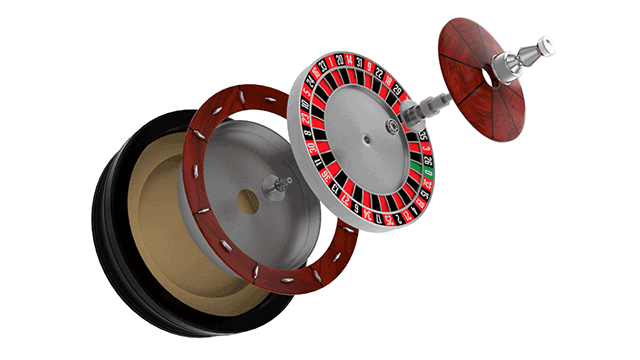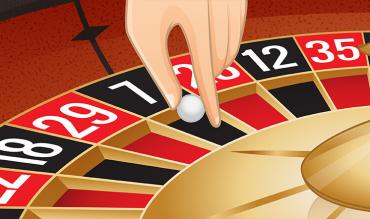“Dollies! Do your dealing!” In my early days as a Roulette croupier, a pit boss would declare this at the start of every day shift, before we let the punters in the door. It was always said with humour, but outside the gaming industry, the perception of croupiers as “dolly dealers” means the challenges of the job – and the skills needed to do it – go largely unrecognised.
There seems to be a bit of a myth that all we do is stand about looking glamorous (or suave, in the case of the male dealers). And while this is part of it, the job also requires mental agility, ambidextrous dexterity, and indestructible interpersonal skills.
In other words, you have to do Einstein style maths in your head, while being just as nimble-fingered with your left hand as your right. (or vice versa)
You’ll be taught the basics at your training school. Courses usually last six weeks, and the majority of the time will be spent on the game of live roulette, with up to a week of blackjack at the end (other games are usually learnt on the job). You can opt for a private training school – ideally one with links to a casino – or you may be able to enrol on a casino run training school, allowing you to earn while you learn.
Either way, the course is likely to follow the same format – and to come out as ready as you can be to hit the ground running, the best thing you can do is to put extra work in at home. Here’s where it can help:
TIMES TABLES
One of the first things you’ll be asked to do on the course is to learn your times tables – but you’ll be going beyond the ones you learnt in primary school! These ones relate to the odds on roulette, and they’ll vary from 5-1 for a six-line covering six numbers, to 35-1 for a straight-up, covering one number. In between, you’ll have corners at 8-1 covering four numbers, streets at 11-1 covering three numbers and splits at 17-1 covering two numbers. Learn all your tables off by heart from 1 to 20, so if you see 16 chips on a split, you’ll know instantly that pays 272 pieces, and if you see 14 chips on a straight-up, you know immediately that this pays 490 pieces. The more work you put in at home, the easier your time will be on the table.
PICTURE BETS
There are certain Roulette bets you’ll see a lot, and we call these “picture bets.” An example of this would be one chip on the straight-up (35 pieces) plus two chips on the splits (2 x 17 pieces, i.e. 34 pieces), which pays 69 pieces. In the training school, you’ll be given print-outs of all the picture bets and asked to memorise them – do it! This will improve your confidence and you’ll look more professional on the table.

CHIP HANDLING
You’ll be taught to “cut” chips, e.g. to separate a stack of 20 chips into four sections of five, just from the feel of it. You’ll also be taught to “chip up” which means very quickly picking up the losing chips that have been swept in from the layout, and sorting them into stacks of 20, according to colour. You’ll be timed as you do this, to get your speed up – and you’ll need to learn what 20 chips feels like in your hand. You’ll probably be given a stack of chips to take home and practise with – if you are, DO it! And if you’re not given a stack to take home, see if you can buy some online. The better you grasp the basics, the easier it will be to deal with anything else that comes at you.
So soak up everything you can at the training school, and to really excel, here are some insider tips from those of us who’ve been there, done that.
TIPS FOR ROULETTE DEALERS
1. TAKE CHARGE
“The dealer should stand in the middle of the table and command their area - take charge of the table. If you look like you’re in control then everybody will be calm because you have their trust. There’s nothing worse than a dealer who appears nervous,” says Nick, a former casino manager. This is echoed by Lexi, an experienced dealer who says, “confidence is key. If you’re nervous, never show it!”
2. WATCH THE TABLE
“Watch your layout when the ball is dropping,” says Richard, a former casino inspector. Richard makes this point because some dealers look at the Roulette wheel while the ball’s spinning – but you should keep your eyes on the layout at all times, only looking at the wheel when you’ve heard the ball drop. The reason for this is that players will be watching the wheel for last-second clues about where the ball will drop – and if you’re not watching the layout, they could be slipping late bets onto the winning number!

3. TAKE YOUR TIME
“When you’re starting out as a trainee, accuracy is more important than speed. I was a very precise dealer myself and everything I did was designed to be clear, precise and technically correct.” Nick hits the nail on the head when he points out that if you focus on getting it right, speed will come with experience.
4. FOCUS ON YOUR GAME
“One of my biggest gripes was the dealer looking for the next dealer that might give them a break, rather than watching the game,” says Richard. In many casinos, you’ll do about an hour and 20 minutes on the table – although this depends on the club and how busy it is that day. Generally though, you’ll know when it’s your break coming up, and it can be tempting to look out for the dealer coming to take you off. Don’t though. It looks unprofessional, and if your mind isn’t on the table, you’ll miss things and make mistakes.
5. WORK WITH YOUR INSPECTOR
“The main thing about roulette is the ability of both the dealer and inspector to communicate and work well together,” says Mark, a former inspector himself. Unlike the career path in some industries, everyone who works in a casino starts out as a dealer, with the potential to progress to inspector, pit boss and manager. Every inspector has been in your shoes, “so don’t be afraid to ask them for help,” says Lexi, adding, “that’s what they’re there for. And be mindful that they might be watching two or three tables, so try and sync your spins with other dealers so they can watch you properly!”
But however well you get on, “never question what your inspector says,” advises Aga. The reason for this is that it looks unprofessional to disagree in front of players, and it undermines their confidence in both of you. So whatever your inspector tells you to do, do it - even if you think they’re wrong. If you believe a mistake has been made, speak to them privately when you’re both off the table – but never contradict them in front of customers.
6. SPEAK UP
“We used to announce bets loudly enough for the guy on the next table to know what we were doing – because if he could hear us, then our inspector definitely could!” recalls Nick. Announcing everything, from call bets to payouts, loudly and clearly is incredibly important. Your inspector needs to hear you over all the noise in the casino – and they need to hear you first time, because there won’t be time to repeat yourself during the spin. It’s also so the microphone on the table can pick up what you’re saying. Everything in the casino is filmed, and the audio is recorded. If you’re loud and clear enough for both the inspector and the audio to pick up what you’re saying, then you’ll always be covered in case of a dispute with a customer.
7. MAKE FRIENDS
“Make eye contact with the players and interact with them. Remember it’s a game and they’re there to have fun. Be their friend - be happy when they win, and sympathetic when they lose,” says former casino manager Fintan. Keeley, who’s currently a casino manager, also advises making the players your friends, explaining, “then it’s harder for them to shout at you when they lose or if you make a mistake!”
However, while it’s great to develop a rapport with the players, it can be best not to get too close. Anna, a casino inspector explains, “if a customer’s nice and I like him, I'll usually take all his money, but if someone’s annoying and I wish they’d leave, they’ll usually win - so it’s best not to have feelings!”
Lexi is all too familiar with this scenario, and her advice is this: “grow a mighty thick skin and practice your “faces”. In particularly the, “I’m so sad you lost” face, when the customer’s horrible, and the “well done I’m so happy” face for when a horrible customer wins!”


